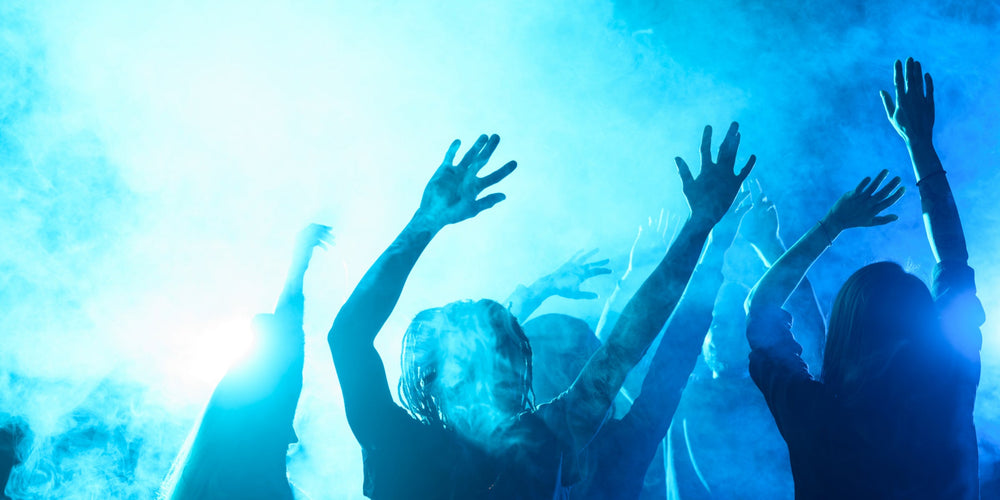Unpacking PCD: Navigating the Aftermath of a Great Show

Stay tuned to our latest news
Have you ever felt sad, empty, or nostalgic after attending a concert of your favorite artist or band? If so, you might have experienced what some people call PCD, or post-concert depression. PCD is a term that describes the feelings of melancholy and low mood that some concert-goers experience after a much-anticipated live music event. PCD is not a medical diagnosis, but an anecdotal one, and it is not the same as clinical depression. However, it can still affect your mental health and well-being, and it is important to know how to cope with it
In the digital age, social media has given rise to a plethora of new terms and phrases that shape our online conversations. While PCD may not be an actual medical condition, it describes the emotional state some individuals experience after attending a concert or live event. In this article, we'll delve into what PCD means, explore its impact, and discuss healthy ways to recover from the emotional aftermath.
What Causes PCD?
PCD may be caused by the contrast between the euphoria and excitement that you feel during and after a concert, and the reality and routine that you face afterwards. During a concert, your brain releases “happy hormones” such as endorphins and dopamine, which make you feel good, energized, and connected to others. You also experience a sense of belonging and identity, as you share your passion and admiration for the artist or band with other fans. You may also have spent a long-time planning, preparing, and looking forward to the concert, which adds to the anticipation and excitement.
However, once the concert is over, you may realize that you can’t relive the experience, and that you have to go back to your normal life. You may feel like you miss the artist or band, even though they don’t know you personally, and that you have nothing to look forward to anymore. You may also regret not doing certain things during the concert, such as taking more photos, videos, or souvenirs, or getting closer to the stage. You may also feel isolated or misunderstood by others who don’t share your enthusiasm or understand your feelings.
On the Emotional Intensity During the Concert Experience

The concert experience is undeniably an emotional rollercoaster. From the moment the lights dim, and the music starts, concertgoers are taken on a journey of highs and lows, with emotions running high throughout the entire event. Whether it's the adrenaline rush of seeing your favorite band take the stage, the overwhelming joy of singing along to your favorite songs at the top of your lungs, or the bittersweet feeling of knowing the night is coming to an end, the emotional intensity of a concert is unmatched.
One of the most powerful emotions experienced during a concert is the sense of connection. As thousands of people come together to share in the music, there is a palpable energy in the air that is both exhilarating and comforting. This feeling of unity and belonging can be incredibly moving, creating a sense of camaraderie among strangers and leaving concertgoers feeling uplifted and inspired.
But it's not just the collective experience that elicits intense emotions during a concert. The music itself has the power to evoke a wide range of feelings, from pure joy and excitement to deep nostalgia and sadness. The raw energy of a live performance can bring out emotions we may not even realize we had, leading to moments of pure bliss or overwhelming catharsis.
Of course, the emotional intensity of a concert can also be amplified by the artist's performance. A captivating stage presence, flawless vocals, and genuine interaction with the audience can all heighten the emotional impact of the music, leaving concertgoers feeling deeply moved and emotionally drained by the end of the night.
The Connection with the Artist/Performer

When we connect with an artist or performer, it's like we are tapping into a shared humanity that transcends time and place. There is something incredibly powerful about being moved by someone's creative expression, whether it's through music, visual art, dance, or any other medium.
When we connect with an artist or performer, we are connecting with their emotions, experiences, and perspectives. We may not know them personally, but their art allows us to glimpse into their inner world and feel a sense of kinship.
This connection with an artist or performer can provide us with comfort, inspiration, and a sense of belonging. We may find solace in a song that perfectly captures our own emotions, or we may feel a surge of energy and empowerment when we witness a powerful performance.
Moreover, connecting with an artist or performer can also be a deeply personal experience. We may feel as though their work speaks directly to us, addressing our own unique struggles and desires. In turn, this connection can help us feel seen and understood in a way that is truly meaningful.
In many ways, our connection with an artist or performer is a two-way street. While we may be consuming their art, they are also sharing a part of themselves with the world. This can create a sense of intimacy and mutual appreciation that enriches both the artist and the audience.
Peer Bonding and Shared Experiences

Peer bonding is an important aspect of human social interaction, especially during adolescence and early adulthood. Sharing experiences with peers can create strong emotional connections and foster a sense of belonging and acceptance within a social group.
Whether it’s participating in a team sport, attending a concert, or going on a road trip, shared experiences provide opportunities for individuals to bond and form lasting friendships. These shared experiences can create a sense of camaraderie and unity, as individuals come together to collectively enjoy and remember a particular event or activity.
Research has shown that individuals who have shared positive experiences with peers are more likely to develop close and enduring relationships. These shared experiences provide a platform for individuals to connect on a deeper level, as they are able to relate to one another’s emotions, thoughts, and memories associated with the experience.
Furthermore, shared experiences can also help individuals develop important social skills, such as empathy, cooperation, and communication. By navigating and negotiating these experiences with their peers, individuals can learn to understand and respect the perspectives and feelings of others, thus strengthening their social bonds.
In addition, shared experiences can serve as a source of emotional support and validation. When individuals face challenging or difficult circumstances, having peers who have shared similar experiences can provide a sense of comfort and understanding. This shared empathy and solidarity can help individuals feel less alone in their struggles and provide reassurance that they are not the only ones facing these challenges.
Why There Are Unrealistic Expectations and Post-event Letdown

Unrealistic expectations can lead to post-event letdown and a feeling of disappointment. Often, when we have high hopes and dreams for a particular event or situation, we set ourselves up for potential disappointment if things don't go as planned. This can lead to feelings of frustration, sadness, and even anger.
Unrealistic expectations can stem from a variety of sources, including social media, societal pressures, and personal desires. We see our friends and family posting pictures of their perfect vacations, relationships, and accomplishments, and we start to feel like we need to live up to those same standards. We compare ourselves to others and set unrealistic goals for ourselves as a result.
When the event or situation doesn't live up to our lofty expectations, we experience a sense of letdown. We may feel like we have failed, or that our efforts were not good enough. This can be particularly damaging to our self-esteem and mental health.
It's important to recognize that everyone experiences moments of post-event letdown, and it's a natural part of life. However, it's also essential to take steps to manage and overcome these feelings. One way to do this is by setting realistic expectations for ourselves and others. This may involve reframing our mindset and focusing on gratitude for what we do have, rather than dwelling on what we don't.
Additionally, it can be helpful to practice self-care and mindfulness techniques to navigate through feelings of disappointment. Engaging in activities that bring us joy and fulfillment, such as exercise, hobbies, or spending time with loved ones, can help lift our spirits and bring us back to a positive mindset.
Why PCD is an Anecdotal Diagnosis

PCD, or Post Concert Depression, is a term popularized by Gen Zs on social media platforms. It refers to the feeling of sadness and longing that can occur after attending a particularly exhilarating concert or music festival. While many people may identify with the feelings that PCD describes, it is important to recognize that PCD is an anecdotal diagnosis and a social media term, rather than a recognized medical condition.
The use of PCD as a term on social media highlights the strong emotional connection that young people have to music and live performances. With so much of their social lives and identity tied to the music they listen to and the concerts they attend, it's not surprising that they would develop a term to describe the emotional letdown that can occur after such a high-energy event.
While PCD itself is not a medically recognized condition, the feelings it describes are very real for many people. After all, music has a powerful impact on our emotions and can create a euphoric experience that is difficult to replicate in everyday life. This can lead to a sense of longing and sadness once the concert or festival is over.
It's important to recognize that PCD is not a diagnosable mental health condition, but rather a way for people to articulate and connect over their shared experiences. However, it can be a reminder of the need for self-care and emotional support after intense experiences. Engaging in healthy coping mechanisms, such as seeking out support from friends and loved ones, engaging in self-care activities, and finding new events to look forward to, can help ease the feelings of post-concert depression.
How Can You Overcome PCD?

PCD is not a serious or chronic condition, and it usually fades away within a few days or weeks after the concert. However, if you find that your PCD is affecting your daily functioning, your relationships, or your mental health, you may want to try some of the following strategies to cope with it:
- Acknowledge and accept your feelings. Don’t judge yourself or feel guilty for feeling sad or low after a concert. It is normal and natural to experience a range of emotions after a meaningful and enjoyable event. Allow yourself to express and process your feelings, whether it is by crying, writing, or talking to someone.
- Seek support from others. Reach out to your friends, family, or other fans who can empathize and validate your feelings. Share your memories and experiences of the concert with them, and listen to theirs. You may also find online communities or forums where you can connect with other people who have gone through PCD, and get tips and advice from them.
- Engage in self-care activities. Take care of your physical and mental health by eating well, sleeping enough, exercising regularly, and doing things that make you happy and relaxed. You may also want to limit your exposure to the artist or band’s music or social media, as they may trigger or worsen your PCD. Instead, try to diversify your interests and hobbies, and explore new things that you enjoy or want to learn.
- Set new goals and plans. One of the reasons why you may feel PCD is because you have lost a sense of purpose or direction after the concert. To overcome this, you can set new goals and plans for yourself, such as saving money for another concert, learning a new skill, traveling to a new place, or pursuing a personal or professional project. Having something to look forward to and work towards can help you regain your motivation and optimism.
- Seek professional help. If your PCD persists for more than a month, or if it interferes with your daily life, your mental health, or your safety, you may want to seek professional help from a therapist or counselor. They can help you understand the underlying causes of your PCD, and provide you with effective coping skills and strategies. They can also assess if you have any signs of clinical depression or other mental health issues, and offer you appropriate treatment and support.
Overall, while PCD may not be a recognized medical condition, it serves as a reminder of the powerful impact that music and live performances can have on our emotions. By recognizing and acknowledging these feelings, we can work towards finding healthy ways to cope and move forward.
Renpho Health Tips
-

Maintaining Mental Wellness During the Holiday Season
November 29, 2023
Read more >
-

5 Reasons Why Hiking Could Be Your Next Therapeutic Escape
November 23, 2023
Read more >
-

The Power of Yoga on Your Mental Well-Being
November 5, 2023
Read more >
-

Rest for Wellness: Linking Sleep and Mental Health
July 9, 2023
Read more >
-

Digital Detox Tips for Better Mental Health
May 2, 2023
Read more >




